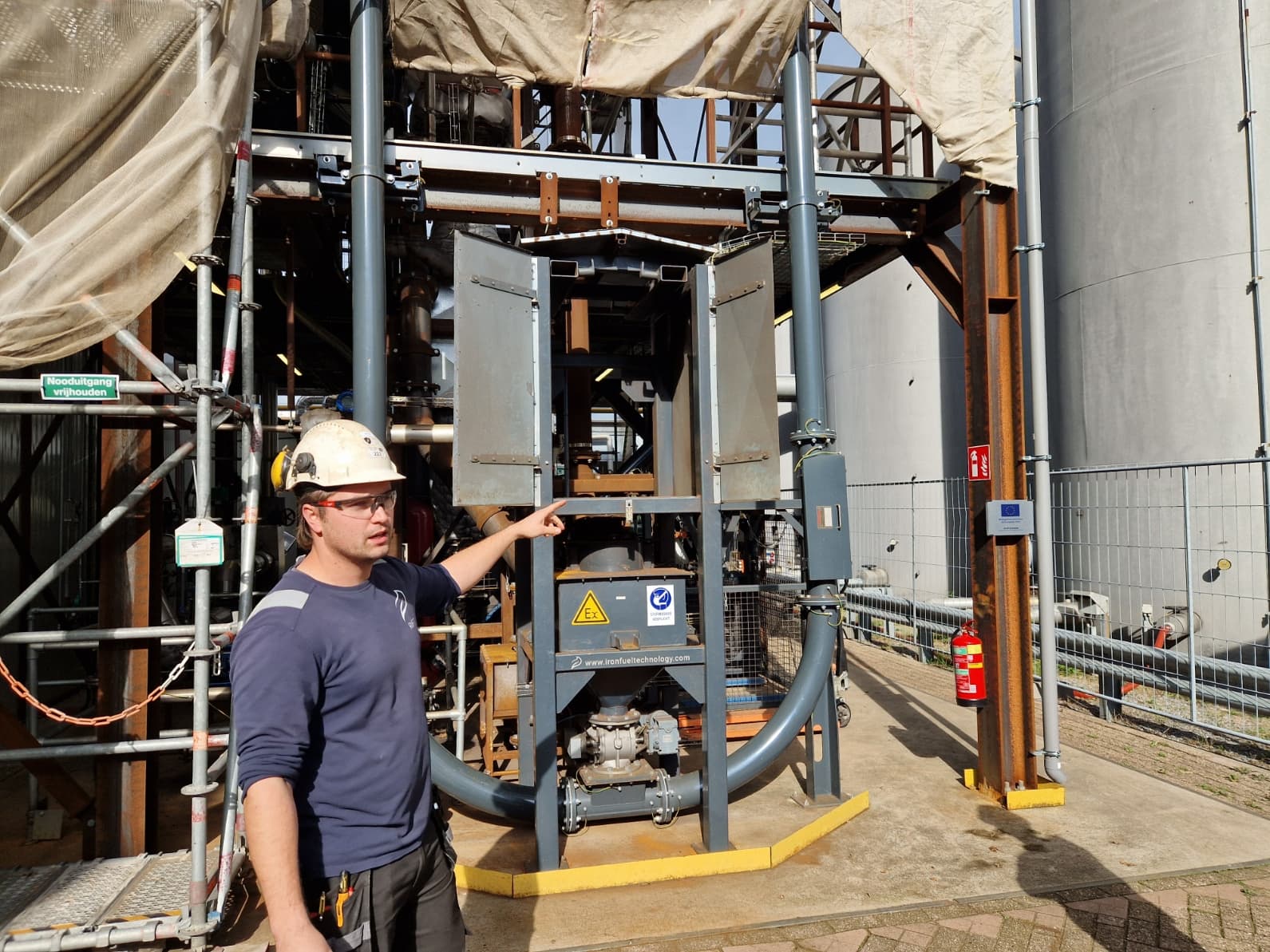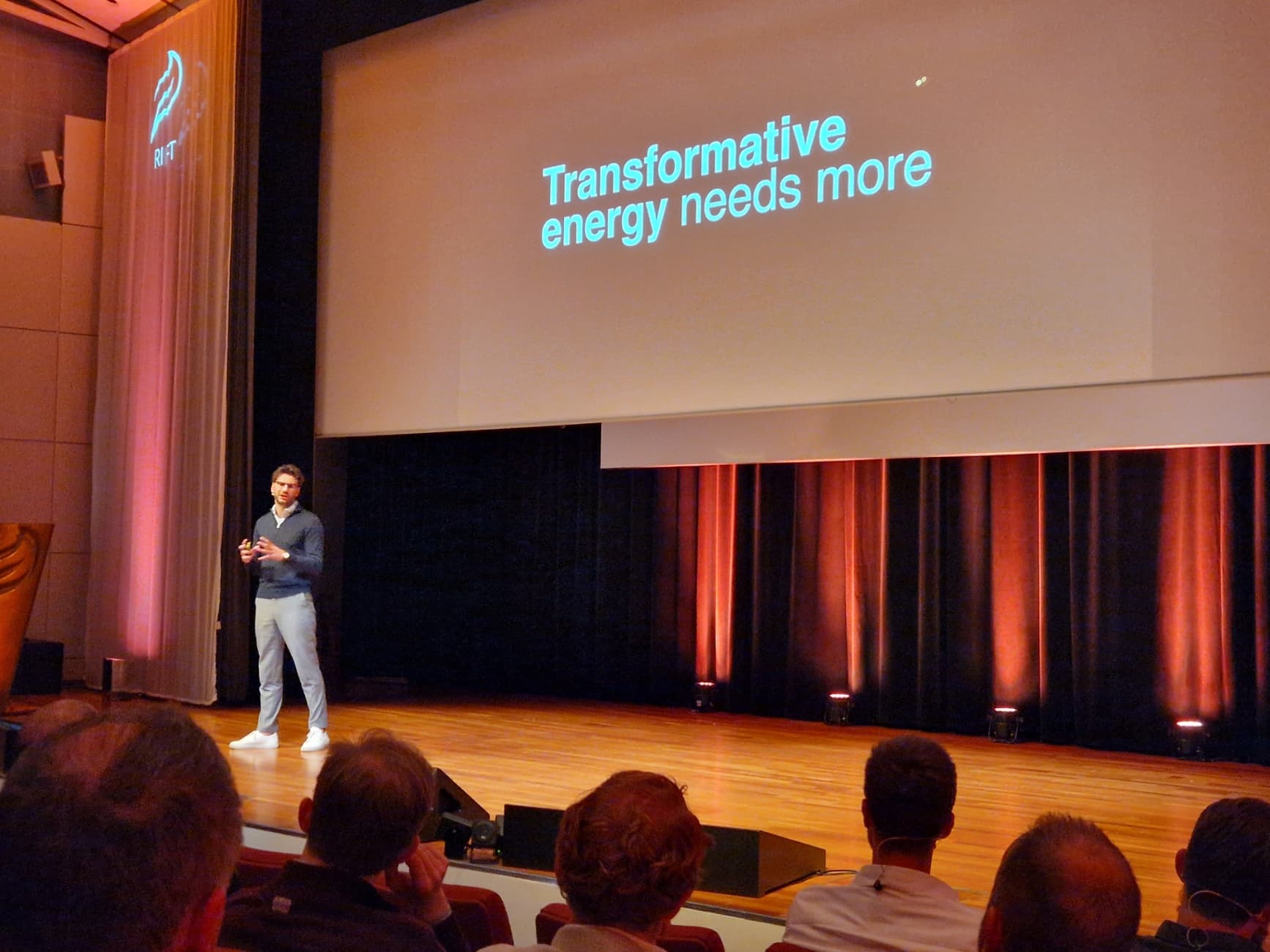RIFT turns up the heat on its global decarbonization goal
Having secured the first contract to supply its iron fuel, RIFT continues to ignite its ambitions for industrial heat decarbonization.
Published on October 17, 2025

© IO+
Mauro swapped Sardinia for Eindhoven and has been an IO+ editor for 3 years. As a GREEN+ expert, he covers the energy transition with data-driven stories.
Behind every object we use in our daily lives is an industrial process. Whether to craft glasses, plastic containers, or bricks, heat is needed. Roughly 18% of the world's greenhouse gas (GHG) emissions are attributable to industrial heat. Decarbonizing the sector isn’t straightforward, but since 2016, a new solution has emerged to address the challenge.
RIFT aims to replace fossil fuels in industrial heat using iron powder, offering a clean, circular, and cost-competitive alternative. Their technology, Iron Fuel, burns iron powder to produce heat, regenerating it through hydrogen, creating a closed-loop system with zero CO₂ emissions. The vision is becoming a reality, as the startup signed the first contract to supply its Iron Fuel technology to insulation materials company Kingspan Unidek.
On October 10, RIFT gathered its network of partners, investors, and advisors to celebrate its milestones. “What has carried us forward is the courage of many people—the spark at the university, the boldness of early adopters, the dedication of our team, and the trust of our partners,” stated on stage Vincent Seijger, one of the founders. But the gathering was to pave the way for more milestones. The ultimate goal is to eliminate one gigaton of CO₂ industrial heat emissions per year by 2050. This amount of carbon dioxide is equivalent to 7 times the Netherlands' annual emissions.
Carbon-free heat
In the industrial area of the city of Helmond, a few kilometers away from Eindhoven, is one of RIFT’s living labs. Covered by iron scaffolding, on the grounds of the heating company Ennatuurlijk plant, there is an iron fuel boiler. The structure is several meters tall and contains a maze of pipes, connectors, and filters behind the iron-fuel process.
At the ground level is the boiler, where iron powder is inserted. Once ignited, fine iron powder is suspended in air and ignited in a boiler, producing a flame reaching 1,500°C. The heat is transferred to water or thermal oil, generating steam or hot water for industrial processes. The only byproduct is rust (technically called iron oxide), which is collected at the bottom of the boiler. The rust is transported to a central facility, where it is exposed to low-carbon hydrogen, reducing it back into iron powder. The cycle repeats, creating a fully circular fuel system.
One milestone after the other
From this same plant, RIFT connected to Ennatuurlijk’s heat network, providing cleaner heat to 5000 homes in Helmond. The advantages of Iron Fuel technology became clearer. No CO2 is emitted, nitrogen oxide emissions are lower than those of natural gas, and the system achieves 95% efficiency, compared to 80-85% for fossil fuels. On top of that, iron powder is easy and safe to store and transport.
The Helmond and other thorough technology tests ultimately led to the contract with Kingspan, the first company to implement the technology on an industrial scale. Under this agreement, RIFT committed to delivering an iron boiler and a long-term fuel supply to its plant in Gemert.
To facilitate adoption and guarantee cost competitiveness and supply stability for companies, the scale-up offers iron fuel contracts linked to natural gas indexes, thereby minimizing risks. “Companies aren’t in the business of producing heat—they’re in the business of making products. If a utility doesn’t pay off, it won’t be adopted,” underlined CEO Mark Verhagen.

Mark Verhagen on stage - © IO+
From Eindhoven to the world
The startup emerged from the Eindhoven University of Technology (TU/e) student team SOLID, founded by Professor Philip de Goey, inventor of the iron powder technology. In 2020, the team demonstrated a 100 kW system in collaboration with Bavaria Brewery, catching the attention of investors and industry leaders and demonstrating that the technology could scale.
At that point, RIFT came into being, and in 2022, it built the first 1 MW pilot plant, further developing the technology. Confidence grew, securing critical investment earlier this year. The further it sustains growth, the clearer the firm's vision becomes, operating in the same way refineries do, centralizing iron oxide regeneration using low-carbon hydrogen in strategic locations such as the port of Rotterdam.
Having received backing from Bill Gates’s Breakthrough Energy, RIFT also aims to expand overseas into Canada and the United States. On the way to net-zero targets, iron fuel aims to become the new standard for industrial heating solutions worldwide.
